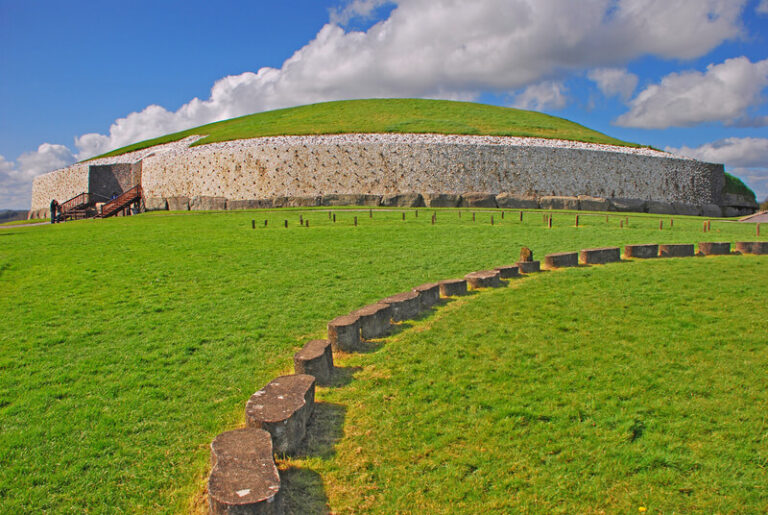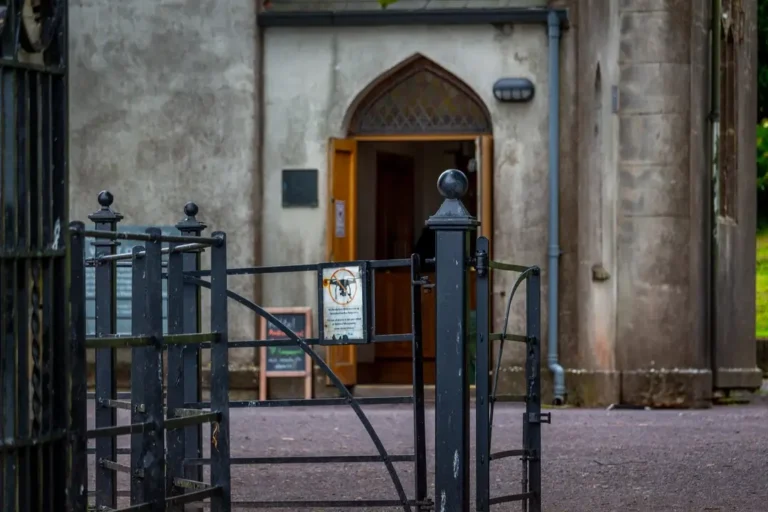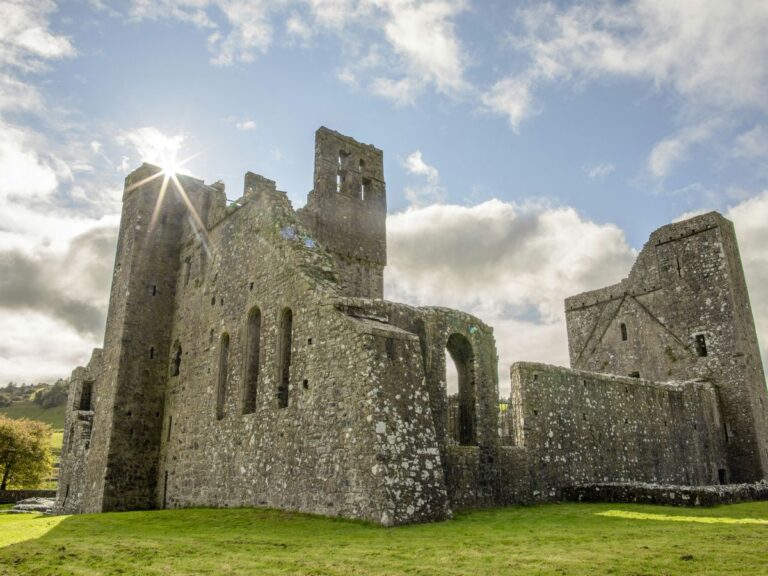Essential Travel Basics for Visitors
Getting ready for a trip to Ireland can feel like a lot to handle, especially if it’s your first time. There are so many things to think about, from what documents you need to what to pack and how to get around once you’re there. But don’t worry, it’s not as hard as it seems. This guide is here to help you sort through all the details, making sure you’re prepared for a smooth and fun visit to Ireland. We’ll cover everything from getting your passport in order to understanding local customs, so you can focus on enjoying your adventure.
Key Takeaways
- Always check your passport’s expiration date and any visa rules well before you travel to Ireland.
- Consider getting travel insurance and sorting out any medical needs before you leave home.
- Pack smart and light, thinking about what you’ll really need for your trip to Ireland.
- Plan your money matters, like getting local currency and looking for discounts.
- Learn about public transport and driving rules in Ireland to make getting around easier.
Predeparture Checklist for Ireland Visitors
Getting ready for a trip to Ireland? Awesome! Before you even think about packing your bags, there are a few things you should definitely take care of. It’s easy to get caught up in the excitement, but a little prep work can save you a lot of headaches later on. I’ve learned this the hard way, believe me!
Check Your Passport Validity
Okay, this might seem super obvious, but seriously, double-check your passport. Many countries require your passport to be valid for at least six months beyond your planned stay. Don’t just glance at the expiration date; actually, look at it. I almost missed a trip to Spain once because I thought I had more time left on my passport than I did. If you need to renew, do it ASAP, especially if you’re traveling during peak season. Visa requirements can also change, so if you’ve been to Ireland before, don’t assume the rules are still the same. You can check the visa requirements online to be sure.
Prebook and Save on Travel
Booking things in advance can really save you some money. Think about it: airport parking, train tickets, even some tours. You might even save a few bucks if you book the morning of, but the earlier, the better. The same goes for ordering currency. I usually get my euros a week or two before I leave. When you pick up your prebooked currency, remember to bring the card you used to order it and make sure you know where to go to get your cash.
Follow Safety Guidelines
It’s always a good idea to keep an eye on what’s happening in Ireland before you go. Check the news for any potential issues that could affect your plans. National agencies are a great place to start. It’s better to be informed than caught off guard. Here’s a quick checklist:
- Check travel advisories from your home country.
- Follow local news in Ireland.
- Be aware of any potential strikes or protests.
Staying informed can really make a difference. I remember one time, there was a big storm headed for Dublin, and I was able to change my travel plans just in time to avoid getting stuck. A little bit of research goes a long way.
Essential Health Preparations for Ireland
Get Insured for Your Trip
Travel insurance? Yeah, you definitely want that. Don’t just assume your regular health insurance will cover you when you’re out exploring the Emerald Isle. It probably won’t. Getting travel insurance is a smart move to protect you from unexpected medical costs. Think of it as a safety net for your health and your wallet. Make sure the policy covers trip interruptions, lost luggage, and cancellations, too. Read the fine print, and declare any pre-existing conditions; otherwise, you might end up with a huge bill if something goes wrong.
Preempt Medical Matters
Before you even start thinking about packing, schedule a check-up with your doctor and dentist. It’s way easier to deal with any potential health issues before you’re miles away from home. Plus, you might need some vaccinations, and some of those require a full course over a few weeks. So, the earlier, the better. You can usually get your shots at a local clinic, but there are also specialist travel health clinics in bigger cities. Don’t forget to pack any prescription medications you need, along with a copy of your prescription. Also, consider packing some basic medicine like GasX or Advil.
Consider Vaccinations
While Ireland isn’t exactly known for exotic diseases, it’s still a good idea to check if you need any specific vaccinations before you go. The CDC and WHO websites are great resources for this. Talk to your doctor about what’s recommended, especially if you’re planning on doing any outdoor activities or visiting rural areas.
It’s always better to be safe than sorry when it comes to your health. A little preparation can go a long way in ensuring you have a healthy and enjoyable trip.
Here’s a short list of things to consider packing in your first-aid kit:
- Band-aids
- Antiseptic wipes
- Pain relievers
- Motion sickness medication
- Eye drops
Smart Packing Strategies for Ireland
Packing for a trip, especially to a place like Ireland with its unpredictable weather, can feel like a puzzle. But don’t worry, it doesn’t have to be a headache. With a bit of planning, you can pack smart and light, making your trip way more enjoyable. It’s all about being strategic and thinking ahead.
Tips for Packing Light
Okay, so the goal is to avoid lugging around a suitcase that weighs a ton. Here’s how to do it:
- Create a packing list and stick to it. This is your contract with yourself. Don’t pack anything that isn’t on the list. Think about what you really need, not just what you might want. A personal packing list is key.
- Choose versatile clothing items. Think layers! A few neutral-colored items that can be mixed and matched will go a long way. A waterproof jacket is a must, no matter what time of year you’re traveling.
- Consider the weight of your luggage itself. Some bags are surprisingly heavy even when empty. Look for lightweight options. Also, learn about luggage design. Most bags are designed to sell easily, rather than facilitate lightweight travel.
- Plan to do laundry. Pack a small amount of detergent or buy some when you arrive. This way, you can re-wear clothes and pack less overall.
- Limit liquids. They’re heavy, bulky, and can leak. Try to use solid alternatives whenever possible (shampoo bars, for example).
Packing light isn’t just about saving space; it’s about freedom. You’ll be able to move around more easily, navigate public transport without struggling, and avoid checked baggage fees. Plus, you’ll have more room for souvenirs!
Backpacker’s Packing List
If you’re planning on backpacking through Ireland, here’s a more specific list to get you started:
- Backpack (40-60 liters is a good size)
- Hiking boots (broken in!)
- Quick-drying clothes (t-shirts, pants, socks)
- Waterproof jacket and pants
- Fleece or warm sweater
- Hat and gloves (even in summer!)
- Reusable water bottle
- Headlamp or flashlight
- First-aid kit
- Travel towel (quick-drying)
- Universal adapter
- Portable charger
Carry-On Essentials
Even if you’re checking a bag, there are some things you’ll want to keep with you on the plane:
- Passport and other travel documents
- Medications (in their original containers)
- Phone and charger
- Headphones
- Snacks
- Empty water bottle (to fill after security)
- Comfortable travel pillow
- Eye mask and earplugs
- Change of clothes (in case your checked bag gets lost)
Remember to check the airline’s carry-on size and weight restrictions before you pack. You don’t want to get stuck at the gate having to rearrange everything. Also, be aware of the rules regarding liquids and gels in your carry-on. Planning your backpacking trip is key.
Financial Planning for Your Ireland Trip
Planning your finances before heading to Ireland is a smart move. It helps avoid surprises and keeps you on budget. Let’s break down some key areas.
Order Currency in Advance
Getting your Euros sorted before you leave can save you some cash. Airport exchange rates? Usually not great. Banks or online services often give better deals. Compare rates before you commit. It’s also good to have some cash on hand when you arrive, especially if you’re heading somewhere rural where card payments might not be as common.
Utilize Discount and Membership Cards
If you’re a student or under 30, look into an International Youth Travel Card. These can unlock discounts on attractions, transport, and even accommodation. Hostelling International memberships can also be useful, even if you’re not staying in hostels. Always ask if there’s a student or senior discount available – you might be surprised!
Budgeting for Your Stay
Figuring out a daily budget is key. Ireland can be pricey, especially in tourist hotspots. Think about your spending habits. Are you planning on eating out every night, or will you cook some meals yourself? Will you be relying on public transport, or renting a car? These choices will impact your daily travel costs. Here’s a rough guide:
- Budget Traveler: €70-€90 per day
- Mid-Range Traveler: €150-€200 per day
- Luxury Traveler: €300+ per day
Remember to factor in unexpected expenses. Things like souvenirs, extra snacks, or a spontaneous day trip can quickly add up. Having a little buffer in your budget can save you from stress later on.
Navigating Ireland: Transportation and Logistics
Getting around Ireland can be pretty straightforward once you figure out the options. From buses to rental cars, there’s a way to see everything, even if you’re not used to driving on the left!
Understanding Local Transport
Ireland has a decent public transportation system, especially in and around the major cities. Buses are a common way to travel between cities and towns, with services like Bus Éireann connecting most places. Within cities like Dublin and Cork, you’ll find buses, trams (Luas in Dublin), and trains.
- Leap Visitor Card: Consider getting a Leap Visitor Card if you’re spending time in Dublin. It offers unlimited travel on Dublin Bus, Luas, and DART (Dublin Area Rapid Transit) for a set period.
- Train Travel: Irish Rail (Iarnród Éireann) connects major cities, but services can be less frequent in rural areas. Booking in advance is often a good idea, especially during peak season.
- Local Buses: In smaller towns, local bus services might be less frequent, so check timetables carefully. Sometimes, a taxi or local hackney might be a better option for short distances.
Driving in Ireland
Renting a car gives you the most freedom to explore Ireland at your own pace. However, there are a few things to keep in mind:
- Driving Side: Remember, they drive on the left side of the road in Ireland. This can take some getting used to, especially at roundabouts.
- Road Conditions: Roads can be narrow, especially in rural areas. Be prepared to encounter winding roads and slower speeds. Tuatha Dé Danann can be found in remote areas, so plan your route accordingly.
- Rental Car Insurance: Make sure you have adequate insurance coverage. Check if your credit card offers rental car insurance benefits.
Driving in Ireland can be an adventure. Be patient, take your time, and enjoy the scenery. Don’t be afraid to pull over and let locals pass if you’re holding up traffic.
Airport Transfers
Getting from the airport to your accommodation is usually pretty easy. Here are some common options:
- Dublin Airport (DUB): Dublin Airport has frequent bus services (Airlink Express, Aircoach) to the city center. Taxis are readily available, and you can also pre-book a private transfer.
- Shannon Airport (SNN): Shannon Airport also has bus services to nearby cities like Limerick and Galway. Taxis and car rentals are available as well.
- Cork Airport (ORK): Cork Airport is smaller, but still offers bus services to Cork city center. Taxis and car rentals are also available.
| Transfer Type | Cost (Approx.) | Travel Time (Approx.) | Notes |
|---|---|---|---|
| Airport Bus (Dublin) | €7-€10 | 30-45 minutes | Frequent services, good value |
| Taxi (Dublin) | €25-€35 | 20-30 minutes | More expensive, but convenient |
| Car Rental | Varies | Varies | Offers flexibility, but consider parking and driving conditions. |
Cultural Etiquette and Local Customs in Ireland
Ireland has a rich culture, and understanding a few customs can really make your trip better. It’s not just about seeing the sights; it’s about connecting with the people and showing respect for their way of life. I’ve found that even a little effort to learn about local etiquette goes a long way.
Respecting Local Traditions
Irish culture is steeped in history and tradition. Here are a few things to keep in mind:
- Language: While English is widely spoken, the Irish language (Gaeilge) is still important. You might see it on signs, especially in Gaeltacht (Irish-speaking) regions. A simple “Dia duit” (hello) can be a nice gesture.
- Music and Dance: Traditional Irish music is a big deal. You’ll find sessions in pubs all over the country. It’s usually okay to listen quietly and enjoy, but avoid talking loudly during performances. Irish dance is also popular, and attending a show can be a great experience.
- History: The Irish have a long and complex history, including periods of conflict and hardship. Be mindful when discussing sensitive topics like politics or religion. It’s best to listen and learn rather than offer strong opinions.
Showing genuine interest in Irish culture is always appreciated. Asking questions about local customs or traditions can lead to interesting conversations and deeper connections. Just be sure to listen respectfully and avoid making assumptions.
Dining Etiquette
Dining in Ireland is generally a relaxed affair. However, there are a few things to keep in mind:
- Tipping: Tipping is customary in Ireland. A tip of 10-15% is standard for good service in restaurants. It’s not usually expected in pubs unless you’re receiving table service.
- Pub Culture: Pubs are a central part of Irish social life. It’s common to buy rounds of drinks for your group. If someone buys you a drink, it’s polite to return the favor later. Don’t be afraid to strike up a conversation with the locals – they’re usually friendly and welcoming.
- Table Manners: Basic table manners apply. Keep your elbows off the table, chew with your mouth closed, and wait for everyone to be served before you start eating. Saying “Cheers!” or “Sláinte!” (to your health) before taking a drink is a nice touch.
Social Interactions
Irish people are known for their friendliness and hospitality. Here’s what to expect in social situations:
- Greetings: A handshake is a common greeting. Close friends and family might exchange a hug or kiss on the cheek. Eye contact is important, as it shows sincerity.
- Conversation: The Irish are known for their storytelling and sense of humor. Don’t be surprised if conversations are lively and animated. It’s okay to ask personal questions, but avoid being too intrusive.
- Gift-Giving: If you’re invited to someone’s home, it’s customary to bring a small gift, such as a bottle of wine or a box of chocolates. A thank-you note is also appreciated.
Understanding these simple customs can help you have a more enjoyable and respectful experience in Ireland. If you’re interested in Irish mythology, there are many tours and books available to learn more.
Staying Connected in Ireland
Mobile Phone Options
Okay, so you’ve got a few choices when it comes to using your mobile phone in Ireland. Roaming with your current provider is definitely an option, but watch out for those fees – they can add up fast! A better bet might be to grab a local SIM card once you arrive. You can usually find these at the airport or in phone shops in most towns. Just make sure your phone is unlocked before you go. Another option is to use an eSIM, which you can download and activate without needing a physical SIM.
Internet Access
Finding internet in Ireland isn’t usually a problem. Most hotels, cafes, and even some pubs offer free Wi-Fi. The quality can vary, though, so don’t expect lightning-fast speeds everywhere. If you’re planning on doing a lot of work online or streaming videos, you might want to consider getting a portable Wi-Fi hotspot. These can be rented or bought, and they give you a more reliable connection. Just remember to check the data plans and coverage before you commit.
Emergency Contacts
Hopefully, you won’t need these, but it’s always good to be prepared. Here are some important numbers to keep handy:
- Emergency Services (Police, Fire, Ambulance): 112 or 999 (both work)
- Your Embassy: Look up the number for the U.S. Embassy in Dublin before you go.
- Your Bank: In case you need to report a lost or stolen card.
It’s also a good idea to share these numbers with a family member or friend back home, just in case they need to get in touch with you or the authorities in an emergency.
And, of course, make sure your phone is charged! A portable power bank can be a lifesaver, especially if you’re out and about all day.
Keeping in touch while you’re exploring Ireland is super easy these days. Whether you need to call home, share your amazing photos, or just look up directions, staying connected is a breeze. To learn all the best ways to keep your phone working and find Wi-Fi spots, check out our full guide on our website!
Wrapping It Up
So, there you have it. Getting ready for a trip doesn’t have to be a huge headache. Just take things one step at a time. Check your passport, think about what you’ll need for your health, and get your money sorted out. A little planning goes a long way. When you take care of these basic things, you can just relax and enjoy your travels. It really makes a difference, trust me.
Frequently Asked Questions
How important is my passport’s expiration date?
Make sure your passport is valid for at least six months past your travel dates. Some countries require this. If you need to renew, do it early, especially during busy travel times. Also, check if you need a visa, as rules can change.
Can booking things early save me money?
Booking things like airport parking and currency exchange ahead of time can save you money. Even on the day of your trip, pre-booking can sometimes offer discounts.
Why do I need travel insurance?
Travel insurance is super important. It can help if your trip gets interrupted, your bags are delayed, or you have to cancel. Health insurance abroad is also key, as your home country’s plan might not cover you. Always tell your insurer about any health issues you have.
Should I see a doctor before my trip?
It’s a good idea to see your doctor and dentist before you leave. If you need any shots, get them well in advance. You can usually get these at a local health clinic.
What’s the secret to packing light?
Packing light means planning. Think about where you’re going and what you’ll be doing. Try to bring clothes that mix and match, and plan to do laundry so you don’t need to pack too much.
Are there any special cards that can save me money while traveling?
For students or young travelers, an International Student Identity Card or International Youth Travel Card can get you discounts. Hostelling International membership is good for anyone. Older travelers might find discounts with airlines and ground transport.
Plan Your Boyne Valley Adventure Today
From the ancient tombs of Newgrange to the medieval walls of Trim Castle, County Meath is truly the crown jewel of Ireland’s Ancient East. With convenient Dublin Airport transfers, a wide choice of accommodation, and unforgettable heritage sites, there has never been a better time to visit.
Ready to experience it all? Book your Boyne Valley tour with Ancient East Tour Company today and let us create the perfect Irish adventure for you.







